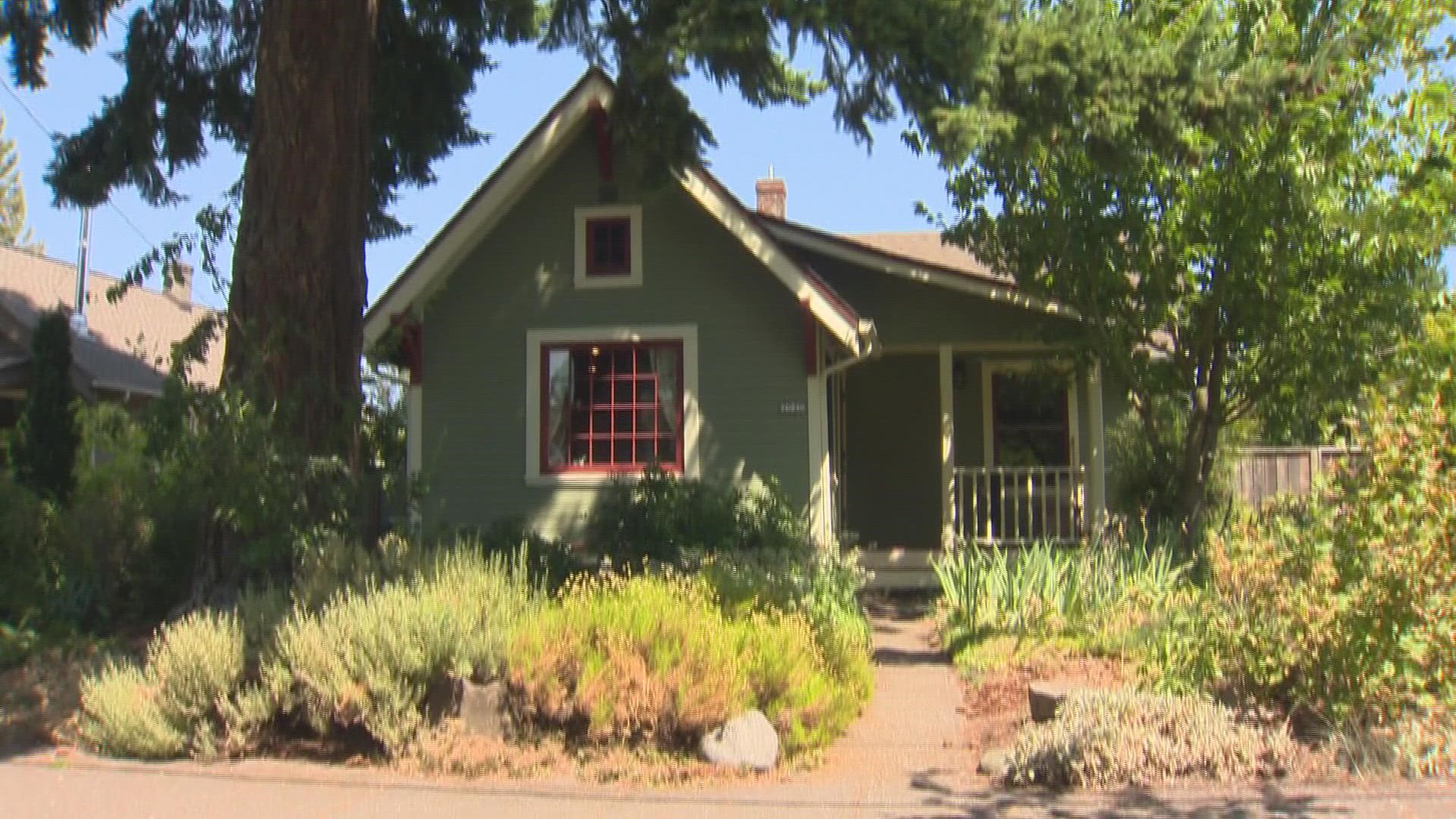PORTLAND, Ore. — Oregon is facing extreme wildfire conditions this weekend, and in addition to multiple planned public safety power shutoffs, communities across the state are already seeing impacts to their air quality due to smoke from current wildfires.
Most Portlanders remember just how bad things can get when smoke from wildfires makes its way here. At one point during the September 2020 wildfire season, the city's air quality index (AQI) was measured to be the worst in the world, and health officials recommended everyone stay inside.
Chrissi Antonopoulos, Building Scientist with the Pacific Northwest National Laboratory in Richland, Wash., used data from Portland's 2020 experience to study effective ways to make sure the air inside homes stays safe to breath, even when the smoke levels outside become hazardous.
"What we saw was that the introduction of the portable air cleaner dramatically reduced the amount of particulate matter that was inside, when the smoke event was very high outside," she said.
That means a portable air purifier with a HEPA filter is the best bet, but it's important to choose one with a high enough Clean Air Delivery Rate (CADR) to full cover the room where it gets set up. The Environmental Protection Agency (EPA) maintains a tip sheet for setting up air purifiers.
"We get a lot of infiltration from the leaks and cracks in our house, so sealing those up is really important as well," Antonopoulos said.
Shutting doors and windows tightly is a must. And residents who choose to run window air conditioning units should make sure sure they have it set to recirculate indoor air rather than pulling in the not-so-fresh air from outside.
For houses with central heating and cooling systems, another important step is to upgrade the main filter. Filters are rated on the Minimum Efficiency Reporting Values (MERV) scale from 1 to 16. The higher the number, the more effective the filter is at removing small particles from the air.
A filter rated MERV-13 or higher is best for removing smoke from indoor air. It's important to follow the manufacturer's recommendations, as not all central systems can handle the highest MERV-rated filters.
But even switching from a MERV-8 to a 10 can provide some benefit.
"Even when heating or cooling is not needed, running your system's fan continuously will help filter the air in your home," Antonopoulos said. "We spend about 90% of our time indoors, and unlike the outdoor environment, the indoor environment is completely unregulated."
Sealing up residential homes and investing in air filtration are good steps to take in any season, and can help protect residents from everything from pollen and dust to viruses and germs. But heading into weekend with the potential for hazardous wildfire smoke, it's all the more important to be prepared.

